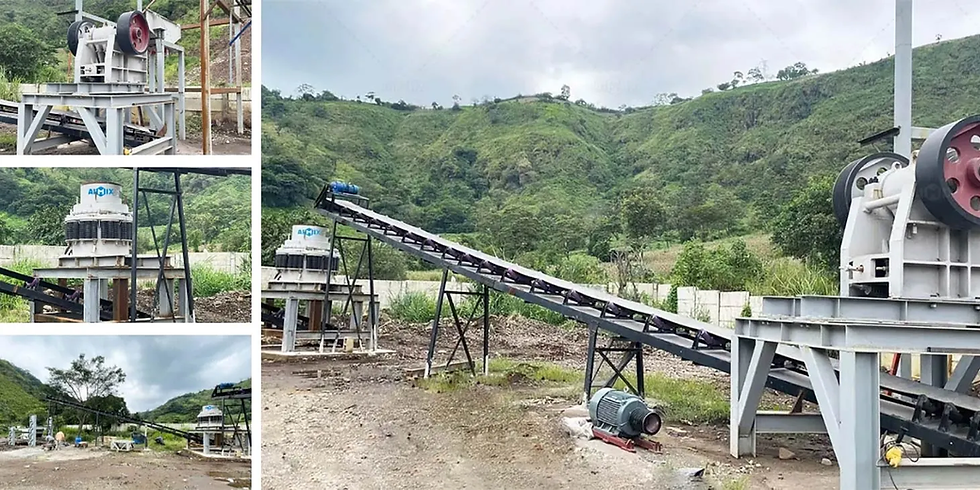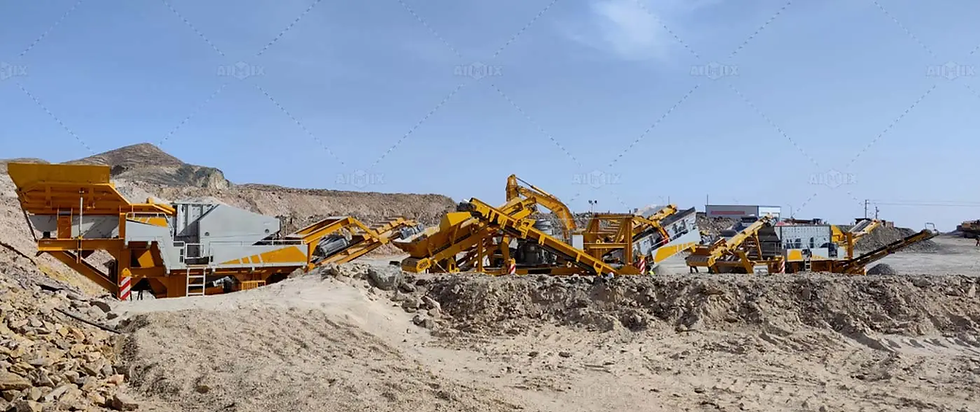The Role of After-Sales Support in Concrete Crusher Machine Price: Is It Worth the Cost?
- aimixgroup china
- Feb 17
- 3 min read
A concrete crusher machine represents a crucial investment for construction and demolition firms. It is not just an ordinary piece of equipment; rather, it plays a pivotal role in project efficiency, material recycling, and overall cost-effectiveness. However, the concrete crusher machine price tag is often a point of debate. Many buyers focus solely on the upfront cost, ignoring a critical factor that significantly impacts long-term expenses—after-sales support. While it might appear as an added expense at first glance, comprehensive post-purchase services can ultimately define the machine’s productivity, durability, and profitability.
Understanding the True Cost of a Concrete Crusher Machine
Hidden Expenses Beyond the Initial Purchase
The sticker price of a concrete crusher does not reflect the entirety of its financial implications. A lower initial cost might seem appealing, but machines lacking adequate after-sales support often come with unexpected expenses. These can include frequent breakdowns, high repair costs, and the inability to source replacement parts promptly. When a crusher sits idle due to technical failures, operations come to a halt, leading to revenue losses that could far outweigh the savings from a lower upfront price.
Moreover, untrained operators may unknowingly misuse the equipment, accelerating wear and tear. A machine without sufficient support services forces businesses to seek third-party assistance, often at exorbitant rates. Over time, the lack of guidance in proper maintenance results in shorter equipment lifespan and increased operational disruptions.

Long-Term Performance and Operational Stability
A well-supported concrete crusher ensures consistent performance throughout its operational life. Regular maintenance, timely software updates, and troubleshooting assistance can significantly enhance efficiency. When crusher machine suppliers provide structured after-sales services, including operator training and proactive maintenance checks, businesses experience fewer unexpected breakdowns. This not only preserves the integrity of the crusher but also enhances its overall output, making projects more time-efficient and cost-effective.
How After-Sales Support Influences Equipment Value
Reducing Downtime Through Prompt Technical Assistance
Every minute a crusher is non-operational translates to lost profits. Machines with strong after-sales support benefit from prompt responses to technical issues, often through dedicated service teams. Manufacturers offering real-time remote diagnostics, video-assisted troubleshooting, or on-site technician visits provide an invaluable advantage. The ability to quickly resolve mechanical failures prevents prolonged disruptions, allowing businesses to maintain a steady workflow.
In contrast, machines from manufacturers that neglect after-sales service often leave buyers scrambling for solutions. A simple mechanical fault could take weeks to fix if spare parts are unavailable or if there is no guidance on troubleshooting. The result? Delayed projects, penalties for missed deadlines, and escalating repair costs.
Maximizing Machine Lifespan with Maintenance and Spare Parts
Concrete crushers endure heavy-duty operations, processing abrasive materials that cause gradual wear. Regular servicing and genuine spare parts play a critical role in prolonging their lifespan. Manufacturers who prioritize after-sales support ensure a steady supply of essential components, minimizing delays associated with replacements.
Additionally, periodic inspections and software updates optimize performance. Many modern crushers rely on automated systems for enhanced efficiency, but outdated software can cause inefficiencies if left unchecked. With dedicated manufacturer support, businesses can ensure their equipment remains technologically up-to-date, reducing the risk of obsolescence.

Balancing Price and Support: Is It Worth the Investment?
The Trade-Off Between Cheap Alternatives and Reliable Service
Some buyers opt for lower-priced crushers from manufacturers that provide minimal or no after-sales support. Initially, this decision might seem financially prudent. However, without access to professional guidance, spare parts, and timely maintenance, such machines often become more expensive to operate in the long run. Unreliable equipment leads to recurring repair costs, reduced efficiency, and lost production time—all of which erode profitability.
Conversely, investing in a well-supported machine ensures operational continuity and long-term savings. A slightly higher upfront investment in a machine with robust post-purchase services often translates to fewer headaches and a higher return on investment.
How Strong After-Sales Support Saves Money in the Long Run
Beyond technical assistance and spare parts availability, strong after-sales support enhances resale value. Buyers looking to upgrade their machinery often find that well-maintained crushers with documented service histories attract higher resale stone crusher plant price. This is particularly beneficial for businesses that plan to scale operations or transition to newer technologies in the future.
Ultimately, after-sales support is not an unnecessary expense but a safeguard against hidden costs that could cripple operations. It is a crucial factor that defines machine reliability, minimizes financial risks, and ensures a more sustainable investment. In the long term, prioritizing support over mere affordability leads to greater profitability and uninterrupted project execution.



Comments